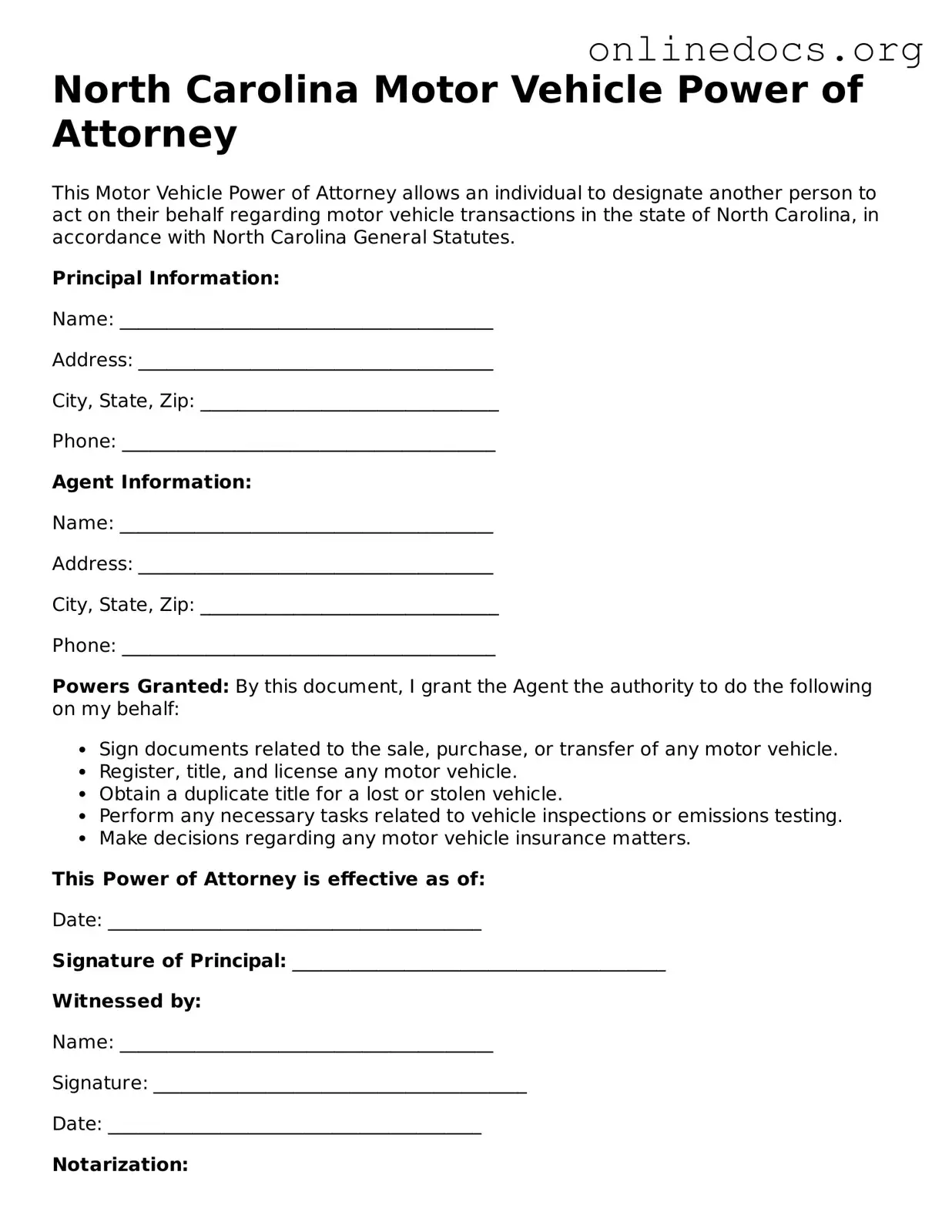Filling out the North Carolina Motor Vehicle Power of Attorney form can seem straightforward, but there are common mistakes that individuals often make. Understanding these pitfalls can help ensure that the form is completed correctly and serves its intended purpose.
One frequent error is failing to provide accurate information about the principal. The principal is the person granting power of attorney. If their name, address, or other identifying information is incorrect, it can lead to complications down the line. Always double-check this information for accuracy.
Another mistake involves not clearly identifying the agent. The agent is the individual authorized to act on behalf of the principal. Omitting their full name or providing incomplete details can render the document ineffective. It is crucial to ensure that the agent's information is complete and precise.
Some individuals forget to specify the powers granted to the agent. The form allows for a range of powers, from transferring title to handling registration. If these powers are not clearly outlined, the agent may not have the authority to perform the necessary tasks. Clarity is key.
Additionally, many people neglect to sign and date the form properly. A signature is essential for the document to be valid. Ensure that the principal signs in the designated area and that the date reflects when the form was completed.
Witness requirements can also be overlooked. North Carolina law requires that the form be signed in the presence of a notary public. Failing to have the document notarized can lead to challenges in its acceptance. Always verify that a notary has signed the form.
Some individuals may not realize that the form must be filled out in ink. Using pencil or other erasable writing instruments can lead to issues with the document's validity. Always use a permanent ink pen to complete the form.
Another common mistake is not providing a clear description of the vehicle involved. The form should include details such as the make, model, and VIN (Vehicle Identification Number). Without this information, it may be difficult to ascertain which vehicle the powers pertain to.
People sometimes forget to keep copies of the completed form. Once the document is signed and notarized, it is wise to retain copies for personal records. This can be helpful if any questions or disputes arise in the future.
Lastly, individuals may not seek assistance when needed. If there is any confusion about how to complete the form, consulting with a legal professional can provide clarity and ensure that the form is filled out correctly. Taking this step can prevent future headaches.
By being aware of these common mistakes, individuals can navigate the process of completing the North Carolina Motor Vehicle Power of Attorney form with greater confidence and accuracy.
